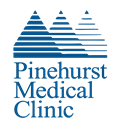October 24th, 2022

The weather is getting cooler, the breeze is picking up and the daylight is getting shorter. And, you know what that means; the holidays are right around the corner. Holiday gatherings with family and friends comes merriment, laughter and potential alcohol consumption. During the holidays, statistics show that alcohol consumption increases for many adults, including those over age 65 and women (Sugarman and Greenfield, 2021).
According to Sugarman and Greenfield (2021), there was a 107 percent increase in alcohol use disorder in adults aged 65 and older in the United States between 2001 and 2013. In addition, these authors reported on a study conducted by the University of Michigan that found older adults reported drinking four or more times per week with 27 percent having six or more drinks on one occasion and seven percent had alcohol-related blackouts. This increase is concerning because alcohol may affect the body differently as people age.
The National Institute on Aging (July 19, 2022) provides valuable information on the impact of alcohol use and aging including how alcohol has a different effect on health issues and prescriptions. These effects can cause older individuals to become forgetful and confused, can cause some forms of cancer,
and can make it hard for physicians to give an accurate diagnosis and treatment plans. Alcohol is a depressant and causes slower reaction times, lower body temperature and alcohol-induced sleepiness. When alcohol is mixed with over-the-counter or prescribed medicine, this can lead to a dangerous situation. For example, taking aspirin and drinking alcohol can lead to stomach or intestinal bleeding. Further, alcohol use “with sleeping pills, pain pills or anxiety/anti-depression medicine can be deadly.” (National Institute on Aging, July 19, 2022) Not to mention that the effects of alcohol begin quickly and persist even after drinking has stopped (National Institute on Alcohol Abuse and Alcoholism, NDA).
The National Institute on Aging (July 19, 2022) and the National Institute on Alcohol Abuse and Alcoholism (NDA) has several tips that may help to reduce or stop drinking habits:
- Stay aware of alcohol intake. Keep track of how many drinks are consumed and how many ounces are in each.
- Plan alcohol-free days.
- Remove alcohol from the home.
- Drink water, juice or soda instead.
- Ask for support from family and friends and seek advice from a healthcare professional.
- If hosting a holiday gathering, offer a variety of nonalcoholic drinks, a variety of healthy foods and snacks and ensure your guests get home safely.
Make this the best, safest and most responsible holiday. For more information about alcohol use, please contact the Substance Abuse and Mental Health Services Administration at 877-726-4727 or visit www.samhsa.gov, or contact a health care provider.
References
National Institute on Aging (July 19, 2022). Facts About Aging and Alcohol. Retrieved on
September 22, 2022 from Facts About Aging and Alcohol | National Institute on Aging (nih.gov).
National Institute on Alcohol Abuse and Alcoholism (NDA). The Truth About Holiday Spirits.
Retrieved on September 22, 2022 from The Truth About Holiday Spirits | National Institute on Alcohol Abuse and Alcoholism (NIAAA) (nih.gov)
Sugarman, D., PhD. and Greenfield, S. MD, MPH (September 24, 2021). Rising Alcohol Use
Among Older Adults. Retrieved on September 22, 2022 from Rising alcohol use among older adults - Harvard Health
Back





